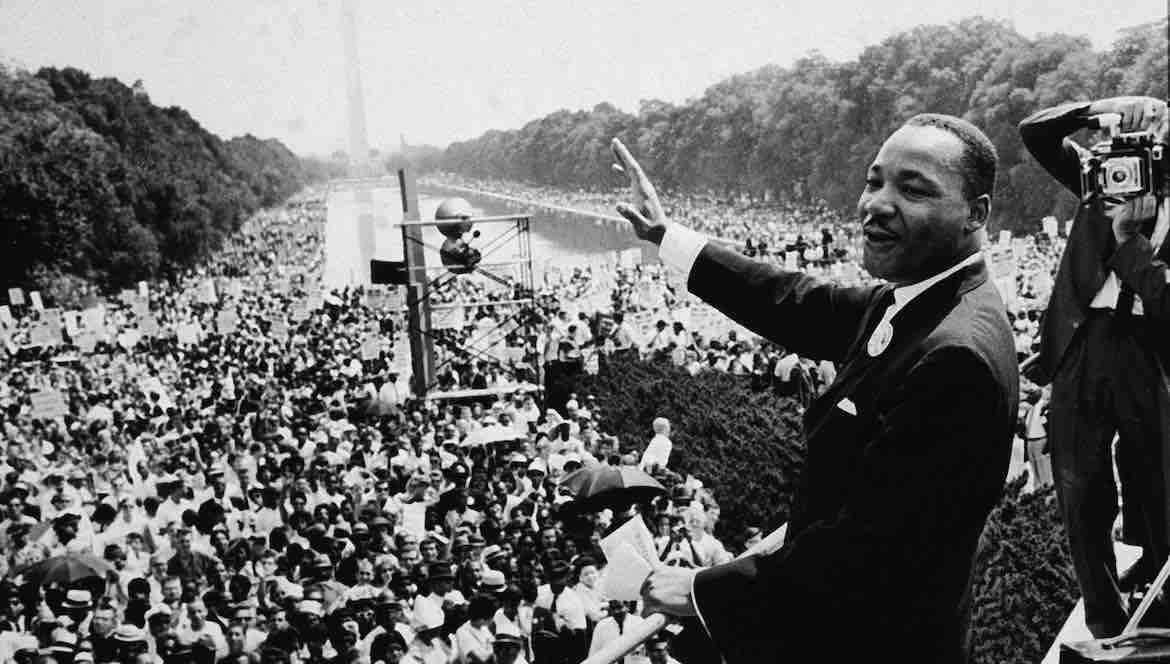To bring exuberant life to the country’s most important public space
President Clinton:
I’ll start with a quote from the German filmmaker and television producer Alexander Kluge: “If I look through the window — a television window is something like an artificial window — then it represents what’s going on in the world. In former times, people looked onto the marketplace. In Frankfurt, Goethe’s mother looked out onto the marketplace and knew what was going on. If somebody didn’t appear for a long time, he was dead. Today, for the majority, this experience has been replaced by television.”
It’s true in Germany, and it’s true in this country: for most people today, social reality is constructed, in large part, by what’s figured, and how it’s configured, on television.
The great promise of public television is its potential to display everything that’s going on in the world — in all its diversity, its primitiveness, its sophistication, its specificity, configured by every possible kind of voice: from inside and outside, discontented and secure, rhetorical, meditative, spontaneous, comic and tragic. If this were public television’s project — that any subject could be named, taught, defended, embellished and refined, and that any person could appear — we would have access to a thick, rich field of experience that encouraged compassion, intelligence and informed action. And we wouldn’t think someone had died, or some group or some energy had ceased to exist when it hadn’t.
This is not, at present, public television’s project. It seems to address a fantasy audience — a construction of vaguely liberal, upper-middle-class people, ashamed of wealth and guilty of indolence, who want to “feel part of the solution” by “viewing” the problem; who want to see themselves as a little more sophisticated than the fans of Oprah and Phil; who feel they should know more than there parents did about the better things in life (gourmet cooking, opera, nature, stocks and bonds). On this fantasy audience, it fosters a dream of significance, depth and elevation. It promises to perfect and protect the dream. The window is frosted.
What does a public, or community, actually need? Recognition, stimulation, progressive motion, social justice, health, information, pleasure and peace. For public TV to be truly public, it will have to envision, and then help to generate, a functional community. A functional community is one that takes care of itself and all its parts. For television to do this, it will have to talk with, not to the native genius, eccentric or otherwise, in this country, in a live, unmanaged manner. It will have to promote the battle of ideas and question nonfunctional operating mythologies. It will have to radically rethink “culture” and promote that special talent in this country that has insight and vision and craft. It will have to be international and feed back critical perspectives upon our cultural, political and economic presence on the globe, from all points of the globe. And it will have to respect and take on the realities of the 20th century: toxic wastes, the depletion of the environment, racism, high-level fraud, nuclear dangers, escalating medical costs, failing schools, etc.
To be public, public television would have to be messy — not well-pressed. It would have to be lively and exuberant–a home-grown, sometimes elegant, always fresh expression of the most vital elements in the community. It would have to be the site of public discourse and disorder — controversial and healing. It could be playful and absurd at times, but it always would be hotter than anything around.
Right now, there are very few hot moments on public television. It is a “packaged” space, high-minded and friendly, but airless. It’s bound by its own very small notion of Culture. When it opens at all, when an occasional film or tape by an independent artist manages to slip past the guardians, then, not often enough, there is a blip on the screen, and one might recognize for a moment something intimate, something angry, something passionate, something heavy, something closer to life as it is lived by most of us.
Please, President Clinton, understand that television is the most important public space in this country. Without a window that shows everything, we will continue to live in a managed dream, where no one can recognize another. Support public television fully and unconditionally so that it has no excuse (or necessity) to compete with info-tainment for its audience, so that it has no excuse for modulating and mediating the intelligence, talent and passion in this country. Appoint people to govern it who love eccentricity, risk and information and who have a broad, inclusive and fair vision of what a clear window could mean.





